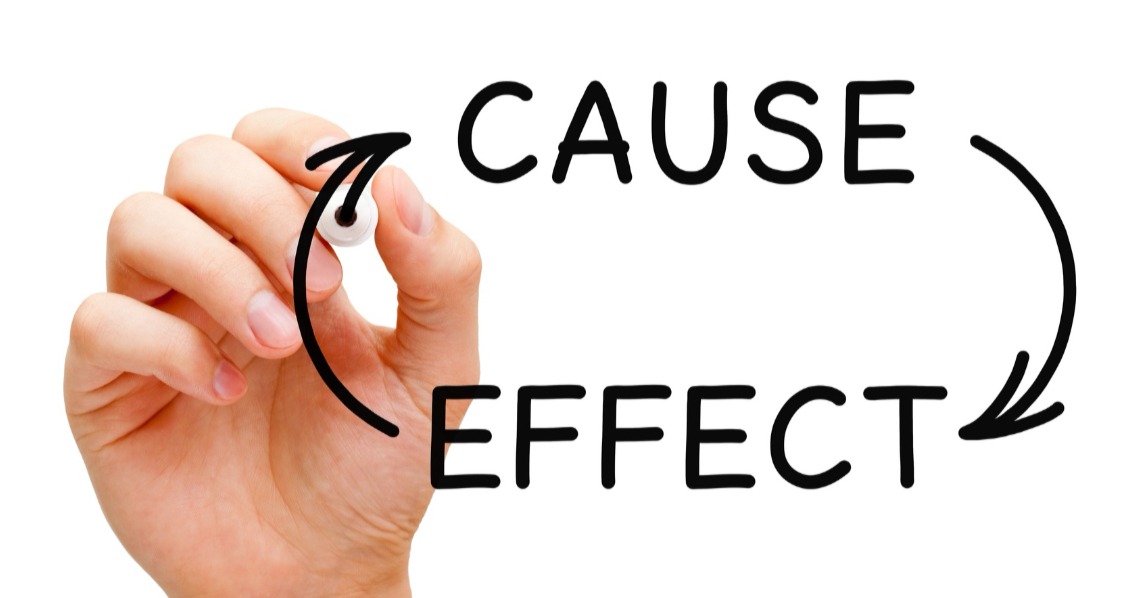Essential Vocabulary for the Digital SAT
1/119
Earn XP
Description and Tags
Name | Mastery | Learn | Test | Matching | Spaced | Call with Kai |
|---|
No analytics yet
Send a link to your students to track their progress
120 Terms
Abolish (v)
Thủ tiêu, huỷ bỏ (v)

Advocate (n, v)
Luật sư, người biện hộ, người ủng hộ (n)
biện hộ bào chữa, tán thành, ủng hộ (v)

Ambivalent (adj)
hai chiều (tỏ ra có những tình cảm lẫn lộn về một vật, người) (adj)

Analogous (adj) to/with
tương tự (adj)

Anecdote (n)
chuyện vặt, giai thoại (n)

Anticipate (v)
biết trước, đoán trước, lường trước (v)

Apprehend (v)
bắt, tóm, nắm lấy
hiểu rõ, thấy rõ
sợ, e sợ (v)

Apprehensive (adj)
sợ, e sợ (adj)

Ascribe s.t to s.o (v)
đổi tại, đổ cho
gán cho, quy cho (v)

Assertion (n)
sự đòi (quyền lợi)
sự/điều xác nhận, khẳng định, quyết đoán (n)

Attribute (n, v)
thuộc tính, vật trượng trưng (n)
cho là do, quy cho (v)

Bias (n)
Bias s.o towards/in favour of/against s.o/s.t (v)
Độ xiên, dốc, nghiêng
đường chéo
sự thiên về, thành kiến, xu hướng (n)
có thành kiến (v)

Bolster (n, v)
gối ôm, tấm lót (n)
đỡ, lót
ủng hộ, bênh vực, giúp đỡ (những cái không đáng ủng hộ)
lấy gối ném nhau, đánh nhau (v)
Cause (n, v) for
Nguyên nhân, lẽ, cớ, lý do
việc kiện, tố tụng
sự nghiệp, đại nghĩa, chính nghĩa
theo phe ai, về bè với ai (n)
nguyên nhân của cái gì, gây ra (v)
Challenge (n, v)
Sự mời ai tham gia trò chơi, cuộc thi
sự thách thức, nhiệm vụ khó khăn
mệnh lệnh của người lính canh bắt dừng lại (n)
hô “đứng lại”
thách thức, kích thích
không thừa nhận, nghi ngờ (v)
Comparable (adj)
đồng dạng, có thể so sánh được (adj)

Comprehensive (adj)
bao hàm toàn diện
mau hiểu, thông minh (adj)
Compromise (n, v) oneself
sự thoả hiệp (n)
dàn xếp, thoả hiệp
làm hại, làm tổn thương (v)
Concede (v) s.t to s.o
thừa nhận (cái gì đúng, có giá trị) (mình thua)
nhường cái gì cho ai (v)
Conclusive (adj)
cuối cùng, kết thúc
xác định, quyết định, thuyết phục được (adj)
Concur (v) with
đồng tình
trùng hợp, kết hợp lại, góp vào
đồng quy (v)
Condemn (v)
kết án, xử phạt
chỉ trích, lên án
bắt buộc, ép
tịch thu (hàng lậu)
loại bỏ đi (đồ dùng cũ) (v)
Conform (v) (oneself) to
làm cho hợp với, thích nghi với
tuân theo, làm theo (v)
Consensus (n)
sự đồng lòng, sự nhất trí (n)

Contend (v) with/against
đấu tranh để thắng một đối thủ hoặc một trở ngại
dám chắc rằng, cho rằng (v)
Control of/over (n)
quyền lực điều khiển, hạn chế
sự quản lý, sự hạn chế, sự hướng dẫn
đối chứng, bộ điều chỉnh
nơi ra lệnh/tiến hành kiểm tra (n)
Conventional (adj)
quy ước, thường
theo tập quán, tục lệ (adj)
Corroborate (v)
corroborate s.o in his statement
làm chứng, làm vững thêm (ý kiến, lý lẽ)
chứng thực lời ai nói (v)
Counterclaim (n)
phản tố, sự dòi bồi thường ngược lại (n)
Deceptive (adj)
dối trá, lừa dối
dễ làm cho nhầm lẫn (adj)
Decisive (adj)
quyết định, kiến quyết, dứt khoát (adj)
Degrade (v)
giáng chức
làm mất danh giá, giảm giá trị
làm giảm sút (sức khoẻ)
làm phai, nhạt đi (màu sắc)
suy biến, thoái hoá (v)
Denounce (v)
tố giác, tố cáo, vạch mặt
lên án, phản đối kịch liệt, lăng mạ
báo trước (tai hoạ), đe doạ (trả thù) (v)
Despondent (adj)
nản lòng, thất vọng, chán nản (adj)
Detrimental = deleterious (adj)
có hại, thiệt hại, bất lợi cho (adj)
Discern (v) s.t and/from/between s.t
nhận thức, thấy rõ
phân biệt (v)
Discredit (v)
sự mang tai tiếng, mất uy tín, mất thể diện
sự nghi ngờ, thiếu tin tưởng (n)
làm mất uy tín; không tin, nghi ngờ (v)
Disdain
Dismiss
Verb. To ignore or reject, often without serious consideration.
Disparage
Verb. To regard as being of little worth or inferior.
Disparate
Adjective. Different or distinct.
Distinction
Noun. A difference or contrast between similar things or people.
Elaborate
Verb. To develop or present in detail.
Employ
Verb. To use.
Enfranchise
Verb. To give the right to vote.
Entrenched
Adjective. Firmly established, difficult or unlikely to change.
Enumerate
Verb. To list or mention one by one.
Explicit
Adjective. Stated clearly or directly.
Fabricate
Verb. To invent or make up, often in a dishonest way.
Facilitate
Verb. To cause, encourage, or make easier.
Feasible
Adjective. Possible to do easily or without an unreasonable amount of effort.
Fluctuate
Verb. To rise and fall or change, usually irregularly or unpredictably.
Former
Noun. The first item in a list of two.
Foster
Verb. To encourage or promote the development (of something).
Frank
Adjective. Honestly, direct, and blunt.
Fundamental
Adjective. Basic or essential.
Idealistic
Adjective. Involving noble or high-minded principles, but often not practical or realistic.
Impartial
Adjective. Unbiased, fair.
Impede
Verb. To block, hinder, or restrain.
Implicit
Adjective. Not stated clearly and directly; implied.
Indifference
Noun. A lack of interest, opinion, or concern.
Indignation
Noun. Anger or annoyance provoked by what is perceived as unfair treatment.
Infallible
Adjective. Incapable of making mistakes or being wrong.
Inhibit
Verb. To hinder, restrain, or prevent.
Innate
Adjective. Inborn; arising naturally.
Interchangeable
Adjective. Capable of being exchanged or substituted, often due to their similarities.
Intricate
Adjective. Highly complicated or detailed.
Irreconcilable
Adjective. Unable to coexist; unable to be resolved. The notion of time travel is irreconcilable with our current laws of physics.
Ironic
Adjective. Contrary or opposite to expectations.
Latter
Noun. The second item in a list of two.
Lucrative
Adjective. Profitable.
Maintain
Verb. To assert.
Mar
Verb. To spoil or damage, and thus render less perfect. Her happiness was marred by regret.
Mimic
Verb. To imitate or copy the actions, speech, or appearance of someone or something.
Misconception
Noun. An incorrect belief or attitude.
Mitigate
Verb. To make less severe, serious, or painful.
Novel
Noun. New or innovative. The researchers used a novel approach to extract the genome.
Obsolete
Adjective. No longer useful. The advent of the computer made the typewriter obsolete.
Objective
Adjective. Based on pure facts rather than on personal opinions or feelings.
Optimism
Noun. The belief or expectation that an outcome will be positive, favorable, or desirable.
Outspoken
Adjective. Frank in stating one’s opinions, especially if they are critical or controversial.
Overlook
Verb. To ignore or not pay attention (to something).
Paucity
Noun. A lack or deficiency. It can be difficult to learn about prehistoric cultures due to the paucity of surviving evidence.
Persist
Verb. To continue to exist; to continue to do something.
Pervasive
Adjective. Widespread or common, often in a negative context.
Pessimism
Noun. The belief or expectation that an outcome will not be positive, favorable, or desirable.
Pragmatic
Adjective. Dealing with things sensibly and realistically in a way that is based on practical rather than theoretical considerations. Although it would be great to completely eliminate world hunger, we need to be pragmatic and focus on the areas in which we can make the greatest impact.
Precede
Verb. To come before in time.
Presume
Adjective. Suppose that something is the case, generally because it is probable.
Profess
Verb. To claim that one has (a quality of feeling), especially when this is not the case. Despite professing that he was not racist, the governor advocated for voting restrictions that systematically disenfranchised black voters.
Profound
Adjective. Deep or intense.
Pronounced
Adjective. Very noticeable or marked; conspicuous.
Proponent
Noun. A person who supports or advocates for a particular idea, cause, or theory.
Prudence
Noun. Wisdom or consideration for the consequences of one’s action.
Qualify
Verb. To make (a statement or argument) less absolute or extreme; to acknowledge nuances or other perspectives). The doctor qualified her endorsement of the allergy medication by acknowledging that it caused side effects in some patients.
Recall
Verb. To remember or evoke.
Refrain
Verb. To stop oneself from doing something.
Refute
Verb. To prove false.
Relate
Verb. To tell a story or give an account.
Reluctant
Adjective. Hesitant or unwilling to do something.